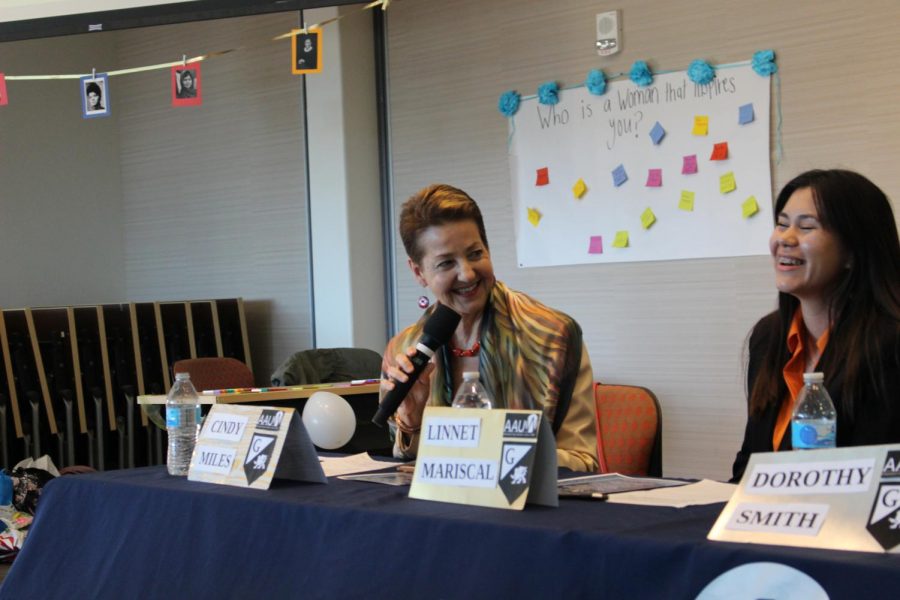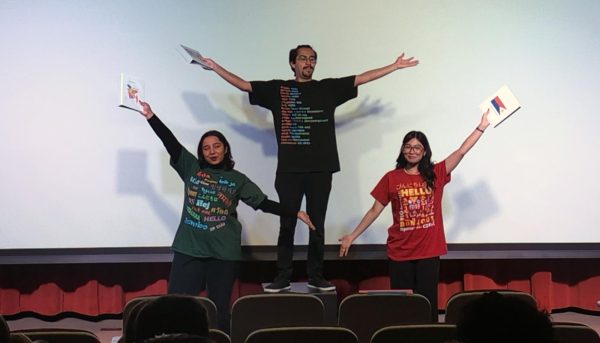Fighting For A Better Future
March 11, 2019
Trends from the national, state and local levels can affect the district— in a good or bad way.
On Feb. 28, Dr. Cindy Miles, Grossmont’s chancellor, presented how national and state trends could affect local community colleges. Miles answered questions and discussed positive and negative actions taken by Congress.
The first topic was about the Higher Education Act. In 1965, the Higher Education Act (HEA) was signed under President Lyndon Johnson. The purpose of the HEA was to provide college students with financial aid and increase educational resources. The goal of the HEA was that it was to be renewed every five years, but it has not been updated in 10.
According to Miles, “conflicts between the Democrats and Republicans” have affected the renewal of the HEA. Improving the HEA would be a big step in helping more low-income students. Another improvement the district would like to see is increasing the Pell Grant from $5,000 to $6,500. There are more than 8,800 students from Grossmont and Cuyamaca Colleges that receive
support from the Pell Grant.
The discussion of Deferred Action for Childhood Arrivals came up stating that there are 250 DACA students in both campuses, and there may be more undocumented students who do not get supported by DACA.
“Many politicians do not understand what it is like to be in community college,” Miles said. Politicians in Sacramento attempt to control the community college districts without realizing what the districts need. The local leaders have little control while congress tells community college districts what to do. On the other hand, candidate for the presidential election, Kamala Harris, D-Calif., said she wants to make college affordable
for low-income students. In addition, Gavin Newsom, the Democratic governor of California, has said he believes education is an important key.
“From cradle to career,” Newsom would like to invest money on early child learning.
Earlier this year, Gavin Newsom proposed a $209 billion budget for California. The budget includes $246 million in funding for community colleges. There is $40 million for the California College Promise Grant, formerly known as the Board of Governors (BOG) waiver in the proposed budget.
Newsom’s budget includes a $144 million increase in the Cal Grant. However, community college students only receive 10 percent funding from the Cal Grant. The rest goes to students attending four-year universities. Furthermore, around 70 percent of Cal Grant applicants come from community colleges.
According to Miles, the goal for Grossmont-Cuyamaca district is to increase transfers to UC or CSU schools by 35 percent while decreasing units accumulated from 87 to 79. It also includes increasing employment in field study from 60 percent to 76 percent by the year 2022. As of now, Grossmont-Cuyamaca has improved affordability, basic needs and resources.
According to first year Grossmont student, Jazmine Reyes, “The resources at Grossmont have helped me receive and manage my financial aid.”
There has been a 58 percent increase in ADTs, while a 27 percent increase in degrees in four years and a 25 percent increase in students receiving a certificate. In addition, Grossmont College has had a 57 percent increase in students completing math and English in the first year, while Cuyamaca College has had an astounding increase of 120 percent, making it the best school in the state in this category. Accelerated programs offered at Cuyamaca have been the factor in increasing these numbers, according to Miles.
Miles even explained about upgrading computers to Windows 10 by the end of 2019. There will also be a help desk for techrelated programs. Network and Wi-Fi have been upgraded 95 percent to cover all parts of the campus including outside areas.
“I think upgrading these resources will help future students and faculty,” Reyes said. “I think Congress should help community colleges with more funding and resources because this would help motivate students to work harder.”
As time goes on, the district hopes more politicians in the future will help community colleges get equal funding they deserve.
Miles also announced in February that she will be retiring at the end of this year. In an email, she said her plans are to continue through December to allow the Governing Board to select a successor and complete the “reaffirmation of accreditation with stable leadership and make a smooth transition.”














